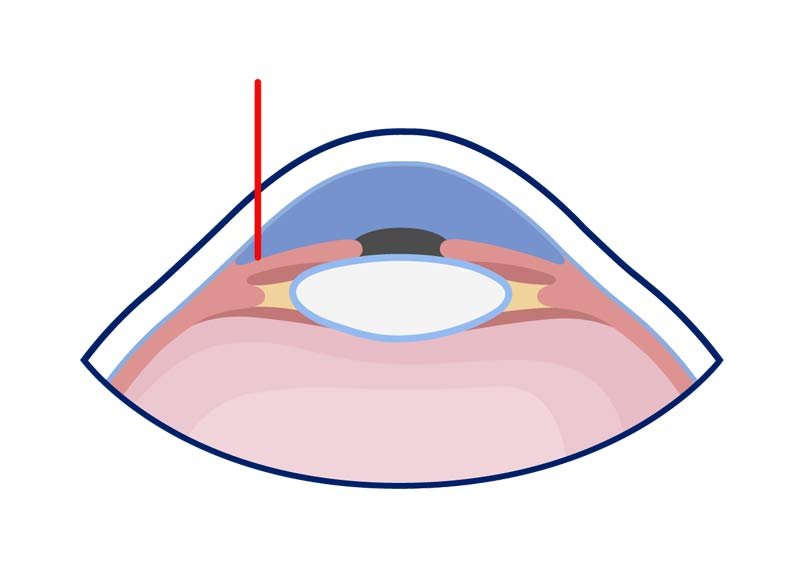Laser Peripheral Iridotomy (LPI)
Laser Peripheral Iridotomy (LPI) is a procedure used for both the treatment and prevention of Angle-Closure Glaucoma. This type of glaucoma occurs when the drainage angle of the eye narrows and becomes blocked, potentially causing a dangerously high eye pressure. Unless treated quickly, this can result in significant vision loss.
Mr Agrawal uses a laser to create a small hole in the outer edge of the iris, allowing the pressure in the front of the eye to equalise with the pressure in the back of the eye.
By creating this small hole the angle can be widened, therefore allowing the fluid inside the eye can flow easily out of the eye through the trabecular meshwork.
This widening of the angle has been shown to be successful in approximately 75% of patients following LPI. Also, it has been shown to reduce the risk of getting an episode of Acute Angle Closure by 99.9%.
During Laser Peripheral Iridotomy, anaesthetic drops are used to numb the eye. The laser is then applied through a lens in the front the eye to the iris. It is a relatively quick and largely painless procedure that takes minutes to perform. It does not require an in-hospital stay and patients are able to go home shortly after completion.
This procedure does not improve vision and is performed to preserve eye health and prevent glaucoma from appearing or progressing further. It is not a replacement for eye drops if you are already using them.

